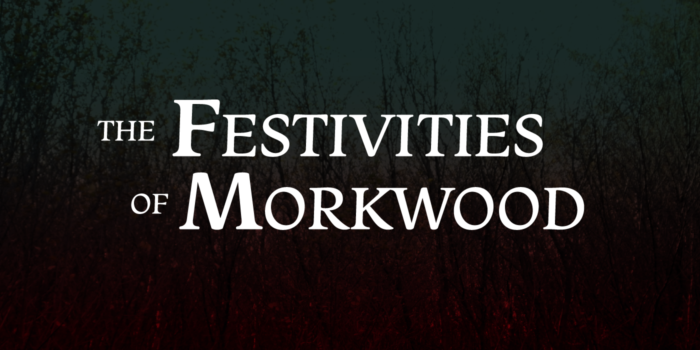18th December
The door to the shed opened in the early hours of this morning. I was expecting William. I wasn’t sure what to say to him – whether I should beg, argue, throw logic at him, or just scream – but it wasn’t him. It was Gerald, Stuart and Terry. Terry’s eyes were bloodshot, and in his trembling hands was a bundle of rope. Gerald had a small dining chair.
Stuart had a pair of pliers.
I panicked. Without thinking I darted towards the door, but there wasn’t any room to get past them in such a small shed. They grabbed me by the shoulders and pushed me backwards. I went to grab the knife out of my bag, but Stuart knocked it from my hand and kicked it towards the door.
Gerald put the chair down and forced me to sit while Terry tied me to it. The rope was rough and rubbed and burned the skin on my wrists. Terry sniffled as he pulled the final knot.
“Shut up, Terry,” Stuart said, but he didn’t sound very convincing. I took the uncertainty in his voice as an opportunity to appeal to his better nature.
“Why are you doing this?” I asked. “Do you not see how insane all of this is? You’re holding me in a shed, and what are you about to do? Torture me? For what?”
Stuart shrugged. “We need information.”
I laughed. “What information could I possibly give to you? If you need help with a library book, I’m afraid you’re going about it the wrong way. Or maybe you think I’m a spy? Perhaps I’m a mole or a secret agent, born here as part of some elaborate covert mission to share the secrets of Morkwood with the Russians?”
Gerald stepped forward silently and slapped me hard across the face.
Stuart sighed. “I apologise on behalf of Gerald for that, but we need information. We don’t want to be here – we have a lot to do on the farm before the snow properly settles, so as you can imagine we’re not in the best of moods. It would serve you well to tell us everything you know as quickly as you can.”
I sat still for a moment, my face still stinging from the slap. “I honestly don’t know what you want from me. Just let me go and I’ll leave the village, I won’t tell anyone what has happened here. I’ll just go.”
Stuart held the pliers near my face so I could see them up close. They smelled of oil and rust.
“Just tell us what you know.”
“About what?”
“About the shtriga.”
A buried memory resurfaced of a rough pencil drawing on the back of a notebook. As children, we used to sketch the pointed face, hideous, soulless eyes and coarse, long hair of the shtriga onto each other’s schoolwork. She always had sharp teeth and branch-like fingers.
The shtriga is featured in many of the stories told in Morkwood. Some of the smaller details about her change, depending on who the storyteller is, but there’s one thing that always remains the same; the shtriga hunts for children in the dead of night to drain them of their blood. It’s the only way to fuel her witchcraft.
If any child under the age of five dies in Morkwood, the shtriga is immediately blamed – partly to hold something accountable for such a senseless tragedy, but also because the villagers genuinely believe in her. No one talks about her seriously beyond the age of twelve, but no one dismisses her either. To do so would be bad luck – it would be like daring the shtriga to visit you.
So I started to tell the three men what I knew. What legends I had heard, what the shtriga looked like… but Stuart cut me off quickly.
“I don’t want stories,” he said, “I want information.”
“I’m telling you everything I know.”
“No, I don’t want to hear about the idea of shtriga. I want to hear about the shtriga. Your aunt.”
I looked at them all individually, holding their gaze, searching for something that would indicate what this was really about. But they seemed serious.
“William and Arthur murdered my aunt,” I said plainly.
“You can’t murder the shtriga,” Stuart said.
My aunt’s decapitated head appeared in my mind’s eye. Milky white eyes. Slack mouth. Grey, blood-drained flesh. Her frozen expression of pain and anguish.
I felt desperately tired. More tired than I felt miserable, or hopeless, or angry. The exhaustion was in my bones, making me feel heavy and slow.
“Just do it, then,” I said. “Whatever it is you’re going to do, just do it.”
Terry stepped forward, crouched down to my level and put my hands on my knees. His brow was furrowed.
“Please, Margaret, tell us where she is so we can catch her. There are many young children to think about. Please.”
They’re insane. They’re all completely insane.
“She’s dead!” I shouted at them. “William murdered her, do you understand? She was just a woman, a normal decent human being, and he drowned her and cut off her head because she said she was shtriga. I don’t know why she did that, I don’t know why he killed her, and I don’t know why we have to find a witch every Christmas, but that’s it. That’s all it is. What more do you want from me?”
“Where is she, Margaret?” Stuart asked.
“You know where she is. She was cut up and dumped on my front lawn.”
I began to cry. It was almost joyful, the release it gave me. I let myself sob from the depths of my stomach, my whole body shuddering with the force of it.
“I don’t think she knows,” Terry said, turning to Stuart.
“She’s pretending,” Stuart said.
Terry shook his head and turned back to me. “Margaret, she’s gone,” he said.
“I know she’s dead.”
“Not dead. Gone. Her body is gone. And they found Carla Harris’ baby a few feet from your house. The shtriga drained him of all blood. She reformed.”
Why would they say this to me? How did they want me to respond? What did they want from me?
Stuart pulled Terry onto his feet and pushed him aside.
“You know what that means, don’t you, Margaret?” Stuart leaned in close. “It means someone took Carla’s baby and offered him to the shtriga so she could rise up from the dead.”
“And you think I did it,” I said.
–
19th December
I can barely write. I’m shaking too much.
After questioning me for hours yesterday and ignoring all of my answers, Terry, Stuart and Gerald finally released me from the chair. Someone else brought food and water, but I couldn’t see their face in the dark. I was forced to toilet in the corner of the shed.
They left me all night. I somehow managed to sleep, using my bag as a pillow.
When the three of them returned this morning, no words were spoken. They simply forced me onto the chair, bound my legs together and tied my right arm behind my back.
When Gerald pulled the pliers out of his pocket, I didn’t say anything. I thought it was another empty threat.
But then he grabbed the thumb on my left hand. He held the end of the nail with the pliers. And before I had the chance to struggle, he yanked the pliers towards him, ripping the nail off.
The burning pain is unlike anything I’ve felt before.
They untied me in silence and left.
They deserve to have their babies taken from them. I want them all to suffer for what they have done.
–
20th December
I keep hearing the noise of my nail tearing from my thumb, over and over.
I’ve wrapped my thumb in a handkerchief I found in my bag. It has stopped bleeding, but I don’t want to look at it. I know it’s bad. It feels bad. It hasn’t stop throbbing since it happened, not for a single moment.
It’s going to get infected. I’m going to die because of these moronic villagers.
I should have left when I had the chance. I was fifteen when my father died. My mother suggested we leave to start a new life somewhere. She said we could move to a city, I could get a better education and she could get a better job.
But I didn’t want to lose my friends. My familiarity. My routine. I cut the outside world off because I was scared of the unknown.
And now I’m scared of everything I know.
I found my thumbnail while scrabbling around on the floor this morning, delirious and tired from the pain. I started to play with it by bending it in half, scraping the stringy, bloody skin from the back of it.
Then I put it in my pocket. It feels important to keep it. A reminder of what they’ve done to me.
The door had been opened while I was dozing. Someone had placed cold stewed vegetables and a glass of milk on the floor for me. I gagged it all down and fell asleep again.
As the morning came and went and it drew later into the afternoon, I realised they wouldn’t come for me today.
Through a small gap in the door, I could see a man guarding the shed. His back was to me. I tried speaking to him. He didn’t even flinch.
Then I heard a rustling.
I turned to see a shockingly white square in the middle of the dark, damp floor.
A piece of paper.
I picked it up and turned it over.
I’ll come for you soon.
I tucked the sheet of paper in between some clothes in my bag. I need to read it again tomorrow, just to know I didn’t make it up. Just so I know I’m not still asleep.
–
You can now read The Festivities of Morkwood on e-book and paperback.




Leave a Reply